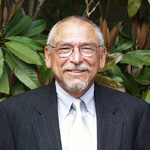Biomedical Engineering Professor Elected Fellow of the SPIE
Michael Berns acknowledged for contributions to biomedical optics
 Michael Berns, Ph.D., professor of biomedical engineering, surgery and developmental and cell biology has been elected a Fellow of the International Society of Optics and Photonics (SPIE). Berns was acknowledged for his major contributions in the field of biomedical optics, especially regarding light interactions with cells and tissues. Berns is also the co-founder of the Beckman Laser Institute and Medical Clinic, which focuses on the use of light and lasers as applied to biology and disease.
Michael Berns, Ph.D., professor of biomedical engineering, surgery and developmental and cell biology has been elected a Fellow of the International Society of Optics and Photonics (SPIE). Berns was acknowledged for his major contributions in the field of biomedical optics, especially regarding light interactions with cells and tissues. Berns is also the co-founder of the Beckman Laser Institute and Medical Clinic, which focuses on the use of light and lasers as applied to biology and disease.
SPIE is an international society of scientists and engineers who apply interdisciplinary attitudes and methods to the application of light. The Society recognizes members each year who have made significant impact in the fields of optics, photonics, and imaging to honor their technical and scientific contributions to the optics community as well as SPIE. Candidates for fellow must distinguish themselves through technical accomplishments, service to the optical community, and service to SPIE. Berns is one of 72 new fellows elected this year.
Berns’ current research focuses on optical technologies as applied to biology, medicine, and biomedical engineering – more specifically, how the body’s cells and tissues interact and respond to light (see the cellular biophotonics program at the Beckman Laser Institute website: www.bli.uci.edu). Berns also designs and engineers basic photonics-based instrumentation. He researches the study of cell structure and function, while using a laser microbeam to perform optical surgery. Using technologies developed at the Beckman Laser Institute, Berns created methods and devices to study problems in cell structure and function. Specific areas of research include spindle organization, the structure and organization of chromosomes, and cell movement.
His most recent research has applied sophisticated computer imaging and robotics in combination with laser tweezers to study the motility of sperm and how it correlates with the evolution of breeding patterns in monkeys, chimpanzees, gorillas, and humans. Berns also works on developing new techniques to improve current medicine by using lasers to treat conditions such as cancer. He holds bachelor’s, master’s and Ph.D. degrees, all in biology, from
